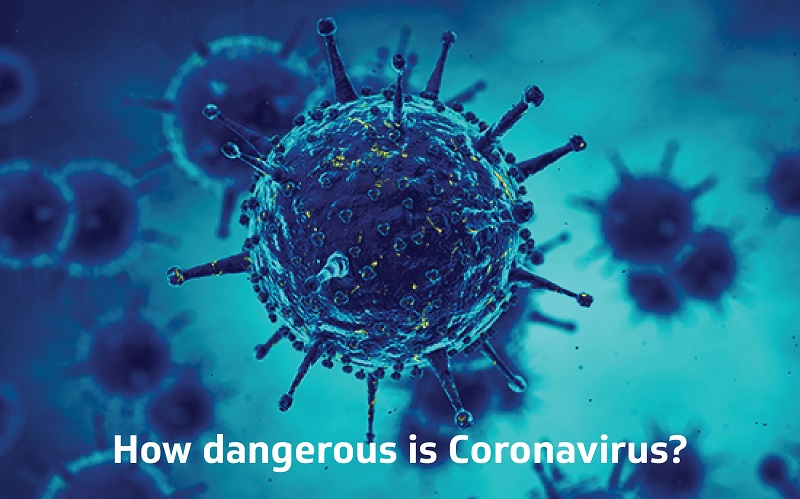What is Coronavirus?
In 1960s, Coronaviruses were first recognized. It is called corona because of their crown-like shape. A coronavirus is like any other common virus that usually causes an infection in your nose, sinuses or throat. Most coronaviruses are not dangerous. However, some type of coronaviruses are serious. In January 2020, following a December 2019 outbreak in China, the World Health Organization (WHO) identified a new type, 2019 novel coronavirus (2019-nCoV).
What are the symptoms of Coronavirus infection?
Common signs and symptoms of infection include fever, runny or blocked nose, sneeze, cough, shortness of breath and breathing difficulties.
In more severe cases it can cause pneumonia, severe acute respiratory syndrome, kidney failure and even death.
How does coronavirus spread?
Since the new coronavirus causes respiratory infection, it spreads through contact with an infected person via droplets produced when a person coughs or sneezes, or through droplets of saliva or discharge from the nose. To prevent the spread of infection, it is important to practice good respiratory hygiene. For example, sneeze or cough into a tissue and discard it immediately into a closed bin. It is also very important for people to wash their hands regularly with either alcohol-based hand rub or soap and water.
Is it dangerous?
There is no need to panic because like other respiratory diseases, 2019-nCoV infection can cause mild symptoms including a runny nose, sore throat, cough and fever. However, it can be more severe for some people and can lead to pneumonia or breathing difficulties. Very rarely, the infection can be fatal. People with pre-existing medical conditions (such as, diabetes and heart disease), older people and young children appear to be more susceptible to complications due to infection with nCoV.
Can you get coronavirus from an animal source?
The animal source of the 2019-nCoV has not been identified yet. However, this does not mean that you can get 2019-nCoV from any animal or from your pet. Most likely an animal source from a live animal market in China was responsible for some of the first reported human infections. For your protection, when visiting live animal markets, avoid direct contact with live animals and surfaces in contact with animals.
Also, you should avoid consumption of raw or undercooked animal products. Raw meat, milk and animal organs should be managed with care, so that cross-contamination does not happen with uncooked products.
What can you do to protect yourself from Coronavirus?
Recommendations by WHO to prevent nCoV infection spread include regular hand washing, covering mouth and nose when coughing and sneezing, thoroughly cooking meat and eggs. Avoid close contact with anyone showing symptoms of respiratory illness such as coughing and sneezing.
General Public Advisory on COVID-19
For further details, please contact: 080-49261111, 6745-8111


